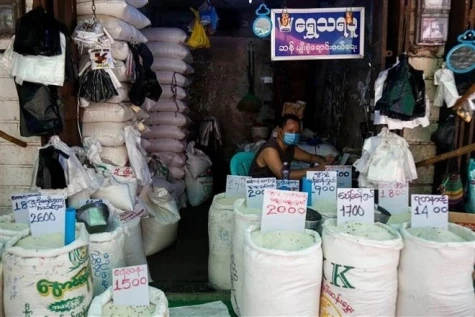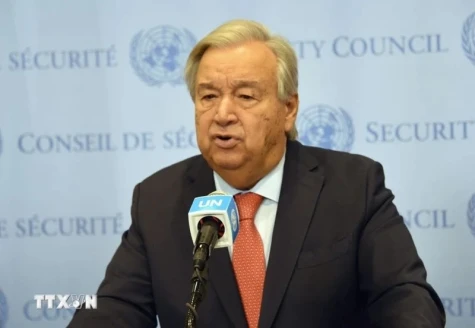In the context of preparing for the 80th founding anniversary of the United Nations (UN), Secretary-General Antonio Guterres called for a comprehensive reform of the world's largest multilateral organisation.

In the face of global challenges and increasing financial gaps, a comprehensive reform is considered an urgent requirement to help increase operational efficiency and strengthen the role of "captain" of the 193-member organisation.
At a recent discussion on the UN reform initiative UN80, Guterres emphasised the importance of the need for the United Nations to quickly adapt to improve its ability to respond to global challenges in the new context. The head of the world's largest multilateral organisation called on member states to support the UN80 Initiative with three main focuses: improving operational efficiency through cost-saving measures, streamlining the apparatus and reducing overlap; reviewing the way carrying out assigned tasks; and adjusting the structure in the entire UN system.
According to Guterres, the above changes not only improve efficiency, resolve overlap and inefficient use of resources, but also significantly save operating budgets. One of the notable proposals is to reduce 20% of personnel in the departments in charge of politics and peacekeeping by eliminating duplicate positions. In addition, the option of relocating some offices from big cities to areas with lower living costs is also considered to save budget.
This is not the first time the issue of reforming the UN has been discussed. This issue was mentioned in the Millennium Declaration, as adopted by the UN in 2000, emphasising efforts to comprehensively reform the Security Council. Considered a key task and top challenge, the above topic has been repeatedly placed on the agenda of the largest multilateral organisation on the planet. The reform contents include strengthening the role of the General Assembly, reforming the Security Council, the Secretariat, working methods, finance, etc.
Despite receiving attention, experts say that in recent times, the reform of the UN has been slow and cautious. Meanwhile, with the unpredictable changes of the current world situation, this issue is becoming more urgent than ever. Analysts say that this is both an urgent requirement of the UN itself and an objective requirement from the international situation.
The reform effort takes place in the context of the UN facing serious financial challenges. As of early May 2025, the United Nations has received less than 50% of its total 2025 annual budget of $3.5 billion. Meanwhile, major donors are cutting aid. According to Richard Gowan, Director of the UN International Crisis Group, if the above trend continues, the organisation may face a 20% budget cut in 2026.
In addition, the current world situation has changed fundamentally compared to when the United Nations was founded 80 years ago. Geopolitical tensions as well as global challenges such as climate change, resource depletion, and pandemics continue to increase and are become increasingly severe, posing challenges beyond the control of each country, requiring multilateral mechanisms to resolve. Therefore, to maintain the role of "conductor", reform has become an irreversible direction for the United Nations.
It is undeniable that the UN has achieved proud achievements over the past 80 years. Officially established in 1945, the UN has made tireless efforts to carry out its mission of maintaining peace, security and building a fair and beautiful world, promoting sustainable development for all mankind. As the "common home" of 193 member countries, the United Nations has always played a central role, a bridge contributing to cooling down many hot spots of conflict in the world, while promoting international cooperation in all fields, from security and economics to culture, society, and human rights.
Established after the end of World War II, leaving behind countless pain and loss, the UN has kindled hope for a peaceful and prosperous world for all people in the world. 80 years have passed, with the tireless efforts of the largest multilateral organisation on the planet, many things that were once just wishes have now become reality. In the new context, the current need for extensive reform is both a challenge and an opportunity for the United Nations to enhance its operational effectiveness and continue to contribute to building a sustainable future for humanity.
NDO






























